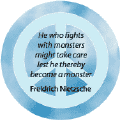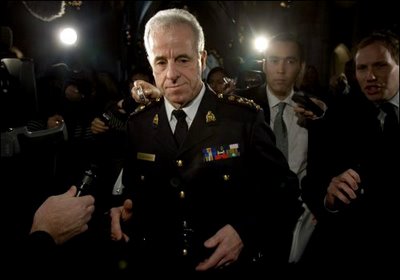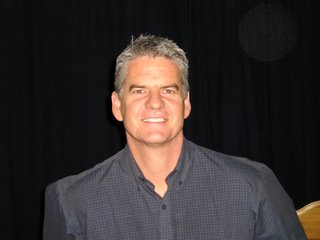Mistakes

I remember as a rookie cop in Cranbrook B.C. the first time that I had a member of the public complain about my conduct. Admittedly, I had made a mistake, and I could have denied it. It was their word against mine. I spoke with a wise, if not somewhat cynical, old cop who told me that a cop who is not having someone complain about them is a cop who is not doing their job. I also recognized the personal power that came from admitting mistakes and errors in judgment. I admitted my mistake and found that the only consequence that came was in the positive form of learning from that mistake.
Years later, my son had almost electrocuted himself by laying a stainless steel chain across the prongs of a lamp plug and then plugging it in. When I asked him about it he began to fudge the truth, making it look accidental as opposed to intentional. I had a great opportunity to teach a valuable lesson that, hopefully, will stay with him for his lifetime.
"We all make mistakes" I told him, but when we cover up those mistakes we are entering in to a whole different area of deceit and character flaws that, if left unchecked, can become a way of life.
My son, just months earlier, had been present when my error in judgment was admitted at my RCMP internal disciplinary hearing. I admitted that my decision to give media strategy documents concerning outlaw motorcycle gangs to an author was a mistake. What I could not say though, was that my motives behind this decision were false or personally motivated. My motives were valid, serious and highly concerning to the public good and safety. What I did with my concern was the error in judgment.
I remember the day that I admitted my mistake as if it was yesterday. Police officers were speculating that another cop had leaked these otherwise benign documents. My mistake was bringing about speculation and judgment, and could have cost taxpayers money and cops time as they investigated other persons for the leak.
It did not take me long to remember a short chapter on mistakes that I had read in Steven Covey's Seven Habits of Highly Effective People. I knew what I had to do. It was one of the most influential and empowering decisions I had ever made in my life. I entered the office of the Commanding Officer and told him what I had done. The resulting consequences- later fuelled by anger and inappropriate political influence- by the opinion of many, would suggest that my coming forward was a mistake. I know in my heart that this is not the case. It was a life changing moment.
From an internal perspective I can say that the wisdom found in this portion of Covey's book is, indeed, timeless wisdom. When we admit our mistakes and fallibilities we become empowered. I thought I would quote the section that spoke to me so clearly during that crucial time in my life.
" the proactive approach to a mistake is to acknowledge it instantly, correct and learn from it. But not to acknowledge a mistake, not to correct it and learn from it, is a mistake of a different order. It usually puts a person on a self-deceiving, self-justifying path, often involving rationalization to self and others. This second mistake , this cover-up, empowers the first, giving it disproportionated importance, and causes far deeper injury to self.
"It is important to immediately admit and correct our mistakes so that they have no power over that next moment and we are empowered again."
Stephen Covey
I am so thankful that I had read that and that it had sunk deep into my heart. As tempting as it may be, cover up, deceit, justifying, blaming, or denying ones culpability is soul destroying. I had experienced both choices over the course of my life and can attest to the freedom that comes from an honest confession of our mistakes and weaknesses.
The truth, indeed, sets us free. It is the presumed subjectivity of what constitutes truth, however, where we often stumble.




